The Marek Edelman Dialogue Center in Łódź is a publisher of books, catalogues, brochures in both printed and electronic versions, as well as audiobooks. Valuable books have been published as part of the Dialogue Center Library since 2013. The first book in the series was Arnold Mostowicz's “Yellow Star and Red Cross”.
Our publications can be purchased:
- at the Dialogue Center building
- in Łódź in REMA, E.Stompel, Sklep-komiksowy.pl bookstores
- in Krakow in the bookstore of the Galicia Jewish Museum
Also on the Internet at: www.rema.com.pl and gildia.pl
DIALOGUE CENTER LIBRARY:
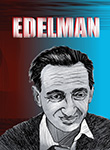
GRAPHIC NOVEL “EDELMAN”
(the book published in Polish and English)
"Edelman" is a publication prepared by the Dialogue Center for the 100th birth anniversary of the institution's Patron. It shows an extraordinary man - a Pole and a Jew, an insurgent, doctor, social activist - a man who always tried to oppose evil and take the side of the weak. We get to know him as a fighter in the ghetto uprising, then a doctor devoted to his patients and an activist of the anti-communist democratic opposition, in which he became involved regardless of the consequences. In the end, the one who experienced life in free Poland but did not remain silent, engaging in resolving subsequent conflicts, like the one in former Yugoslavia.
The authors of the comic are a team of experienced artists: Michał Arkusiński - cartoonist, Maciej Cholewiński - screenwriter, Piotr Kasiński - adaptation of the screenplay
Dialogue Center Library. Łódź 2019
E-BOOK: https://www.centrumdialogu.com/ebooks/edelman/ (available only in English)
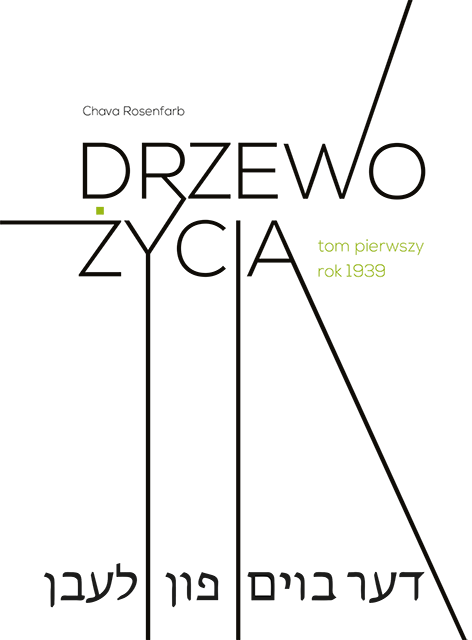
“Tree of Life. Volume Three. Years 1942-1944” Chava Rosenfarb
(the book published in Polish)
Translation from Yiddish: Joanna Lisek, Magdalena Ruta, Marek Tuszewicki, Natalia Krynicka
In the multi-volume novel Tree of Life, Chava Rosenfarb described Łódź on the eve of the Holocaust, as well as the Łódź ghetto from 1940 until its liquidation in 1944. Although the novel by Rosenfarb depicts a time of hatred, contempt and death, it carries a message of love and peace. The writer finishes the third volume of the book with an appeal to future generations: "I beg you and remind you of this old, unfulfilled commandment: Don't kill! My son, by obeying it you will not eliminate death from the world of nature, but - do yourself a favour - do not be responsible for it. " The appeal of Chava Rosenfarb, a survivor from the Łódź ghetto, is still valid.
Dialogue Center Library. Łódź 2017
E-BOOK: https://www.centrumdialogu.com/ebooks/drzewo_zycia/tom3 (available only in Polish)
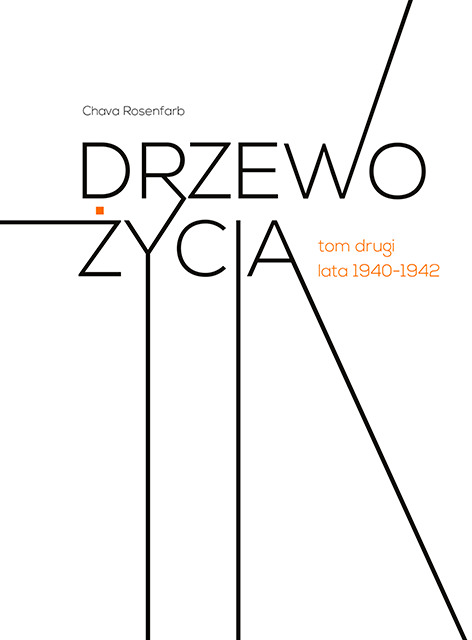
“Tree of Life. Volume two. Years 1940-1942” Chava Rosenfarb
(the book published in Polish)
Translation from Yiddish: Joanna Lisek, Magdalena Ruta, Marek Tuszewicki, Natalia Krynicka
Chava Rosenfarb (1923-2011) was born in Łódź. She survived the Łódź ghetto, as well as the camps of Auschwitz, Sasel and Bergen-Belsen. After the war, she lived in Belgium, and then in Canada. Author of poetry volumes, drama, essays, and above all excellent prose. The experience of the Holocaust is an important element of her work. The three-volume saga of Chavy Rosenfarb "Tree of Life" (Der boim fun lebn) tells the story about Łódź, and above all about the Łódź ghetto and its inhabitants. The second volume of the work covers the years 1940-1942, when the Germans created a separate district for Jews, and the city itself was named Litzmannstadt. For this moving story, Chava Rosenfarb was honoured with many awards around the world.
Dialogue Center Library. Łódź 2016
E-BOOK: https://www.centrumdialogu.com/ebooks/drzewo_zycia/tom2 (available only in Polish)
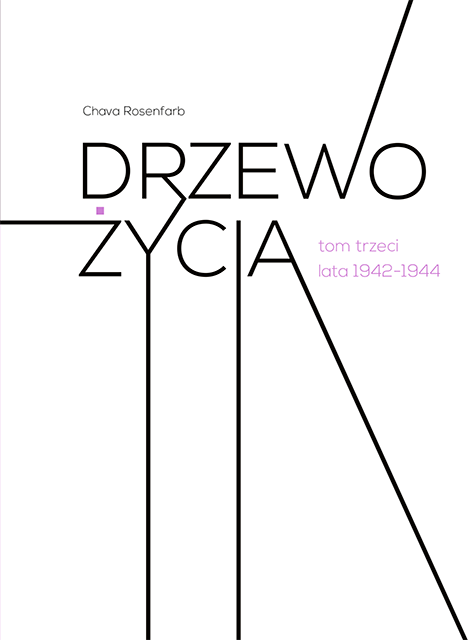
"Tree of Life. Volume One. Year 1939" Chava Rosenfarb
(the book published in Polish)
Translation from Yiddish: Joanna Lisek, Magdalena Ruta
"Tree of Life". This book about multicultural Łódź was first published in 1972 in Yiddish, and in 1985, in English. The first volume of the novel “Year 1939” tells us about the Jews of Łódź at the out-break and in the first months of World War II, about their daily lives and interpersonal relations in extreme situations. Fictional characters are partly modelled on authentic characters, and the chronology of events and the topography of Łódź are based on facts. For this novel, the writer was honoured with the prestigious Icyk Manger Prize awarded for Jewish literature. Now, for the first time, it reaches Polish readers.
Dialogue Center Library. Łódź 2015
E-BOOK: https://www.centrumdialogu.com/ebooks/drzewo_zycia/ (available only in Polish)
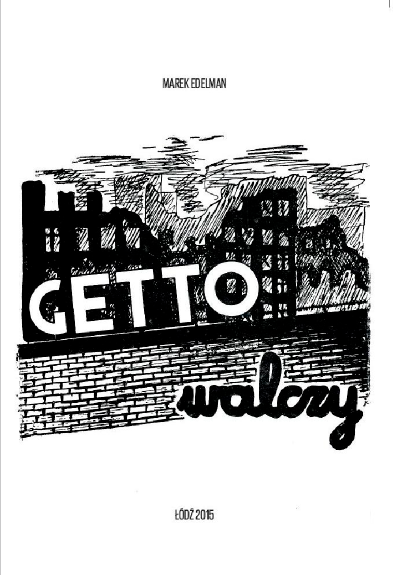
"The Ghetto is fighting" Marek Edelman
(the book published in Polish)
The first edition of "The Ghetto is fighting" by Marek Edelman was published in 1945 by the publisher CK Bund. The introduction to the book was written by Zofia Nałkowska. This is the first account presenting the events of the Warsaw Ghetto Uprising from the participant's perspective. Exactly 70 years later, the Dialogue Centre named after Marek Edelman resumed publication thanks to the kindness of Mark Edelman's children; Anna and Aleksander, with financial support of Zakład Wodociągów i Kanalizacji Sp. z o.o. and Grupowa Oczyszczalnia ścieków in Łódź Sp. z o.o. The book was enriched with footnotes and a historical commentary by Dr. Michał Trębacz (Centre for Jewish Research of the University of Lodz) and a biographical introduction.
The audiobook was recorded by Marek Edelman’s son, Aleksander.
Dialogue Center Library. Łódź 2015
AUDIOBOOK: http://pliki.centrumdialogu.com/getto_walczy.mp3 (available only in Polish)
E-BOOK: https://www.centrumdialogu.com/ebooks/getto_walczy/ (available only in Polish)
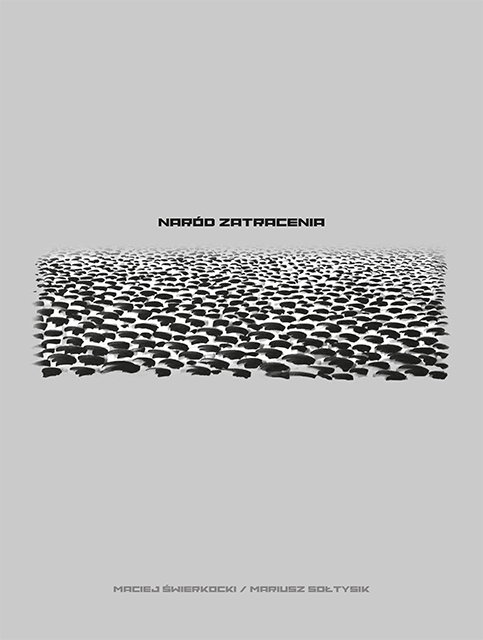
Graphic novel "Nation of Perdition" Mariusz Sołtysik and Maciej Świerkocki
(the book published in Polish)
"Nation of Perdition" (the title is a quote from Dante's "Divine Comedy") is a fictional story, though based on facts, depicting life in the Łódź ghetto. Brought to the most dramatic moment in its history, the so-called "Great Szpera". It is intended primarily for a young reader who is not familiar with this topic, place and its history. This is an unconventional and original proposal in many respects. The overarching value of the publication, however, is its universal nature and message - it is a story about how evil is born. Viewed through the eyes of the main character, the ghetto appears to be a nightmare - a grotesque Orwellian-Kafkaesque world.
The authors of the book are: writer and translator, Maciej Świerkocki (text) and artist and academic lecturer, Mariusz Sołtysik (drawings and graphic design).
Dialogue Center Library. Łódź 2014
E-BOOK: http://www.centrumdialogu.com/ebooks/narod_zatracenia/ (available only in Polish)
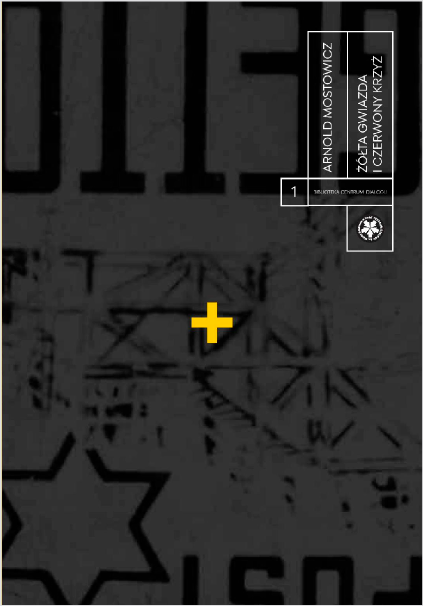
"Yellow Star and Red Cross" Arnold Mostowicz
(the book published in Polish)
The memories of the Holocaust survivor, writer and journalist, Arnold Mostowicz (1914-2002) describe the dramatic experiences of World War II, both from the Łódź ghetto and the German concentration camps that haunted the author throughout his life. The book is one of the most important documents left by a Litzmannstadt Ghetto Survivor, a witness and participant in those events, and the report about the Gypsy camp in the ghetto is a unique historical testimony. Its publication was resumed after 25 years to commemorate the author's hundredth birthday. Mostowicz was an Honorary Citizen of Łódź and the founder of the Monumentum Iudaicum Lodzense Foundation created to save the heritage of Łódź Jews. He always emphasized his connection with his hometown and its history.
The book is supplemented by a preface by Marian Turski, a historical commentary by Ewa Wiatr and a biographical text by Joanna Podolska.
Dialogue Center Library. Łódź 2013
E-BOOK: https://www.centrumdialogu.com/ebooks/zolta_gwiazda/ (available only in Polish)DIALOGUE CENTER EXHIBITIONS’ CATALOGUES:
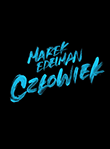
Marek Edelman. The Man
(the book published in two language versions: Polish and English)
The catalogue for the exhibition "Marek Edelman. The Man", which was prepared as part of the Marek Edelman Year and opened on April 18, 2019, comprises selected texts, documents and photographs presented at the jubilee exhibition. At the same time, it is a handy selection of important quotes and thoughts of the exhibition hero, who did not want to be a hero, but was forced into it by history. However, his views and life attitude can become a kind of moral compass for young people. Edelman: doctor, socio-political activist, one of the leaders of the Warsaw Ghetto Uprising, decorated with the Commander's Cross of the Legion of Honour and the title of Doctor Honoris Causa of many universities. From 2010, he has been the patron of the Dialogue Center. The exhibition and the catalogue not only provide information about him but also about the last 100 years of Polish, European and world history. The exhibition's curator: Marta Skłodowska. Co-authors: Magda Kamińska, Joanna Podolska.
Dialogue Center Library. Łódź 2019
E-BOOK: https://www.centrumdialogu.com/ebooks/edelman_czlowiek/
E-BOOK (EN): https://www.centrumdialogu.com/ebooks/edelman_czlowiek/en
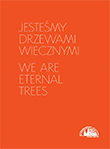
Jesteśmy drzewami wiecznymi/ We are eternal trees
(the catalogue published in bilingual Polish-English version)
The catalogue of the exhibition "We are eternal trees" opened on the 75th anniversary of the liquidation of the Litzmannstadt Ghetto, presents the history of the district in which, in 1940-1944, the Germans imprisoned over 200,000 Jews from Łódź, surrounding cities and towns, and several other countries, including Czechoslovakia and Austria. It also presents biographies of a dozen Holocaust survivors whose symbolic Memorial Trees are in the Survivors' Park. The post-war choices of survivors were very different: some stayed in Poland and tried to rebuild their lives (Halina Elczewska, Marian Turski, Jankiel Herszkowicz), others left their homeland to look for their place in another part of Europe (Stefan Skotnicki in the Netherlands, Zenia Larsson in Sweden) or the world (Henry Bajgelman and Lucjan Dobroszycki in the United States, Hadassa Wizeenberg and Chaim Kozienicki in Israel). Today, their children and grandchildren speak different languages and they live on almost all continents. The Survivors' Park symbolically connects them with Łódź. What's more, it shows the triumph of life over death and love over hatred. The catalogue is also a gift to celebrate the 15th anniversary of the Survivors' Park, in which there are already over 640 Memorial Trees. The authors of the texts are: Joanna Podolska and Adam Sitarek, translation into English by Agnieszka Chojnacka.
Dialogue Center Library, Series: Survivors’ Park. Łódź 2019
E-BOOK: https://www.centrumdialogu.com/ebooks/jestesmy_drzewami_wiecznymi/ (available in Polish and English - bilingual edition)
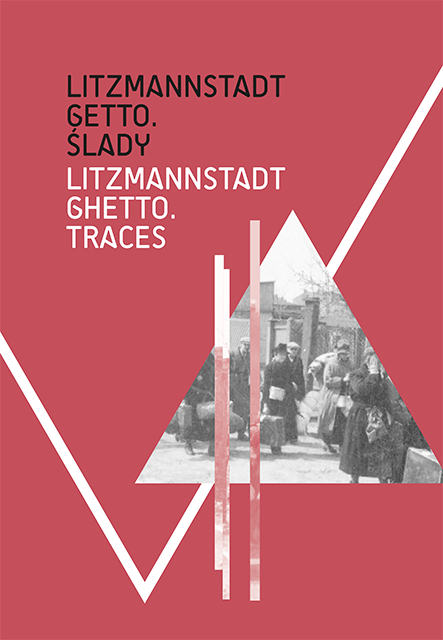
Litzmannstadt Getto. Ślady/ Litzmannstadt Ghetto Traces
(the catalogue published in bilingual Polish-English version)
The publication is based on the exhibition entitled "Litzmannstadt Ghetto. Traces " which was opened in 2016 to commemorate 75th anniversary of the deportation of Western Jews to the Litzmannstadt Ghetto. The publication consists of two parts.
The first of them presents the biographies of ten Holocaust survivors who have their trees in the Survivors' Park. The second part entitled "Jews from the Reich and the Protectorate in Litzmannstadt-Ghetto (1941-1944)" tells the story of 20,000 Jewish inhabitants of several large European cities, including Vienna, Prague, Berlin, who were resettled by the Nazis to the then Litzmannstadt in the autumn of 1941.
The authors of the exhibition and the catalogue are: Joanna Podolska and Adam Sitarek. Translation into English by Dorota Dekiert, Paweł Madej.
Dialogue Center Library. Łódź 2016
E-BOOK: https://www.centrumdialogu.com/ebooks/slady (available in Polish and English – bilingual edition)
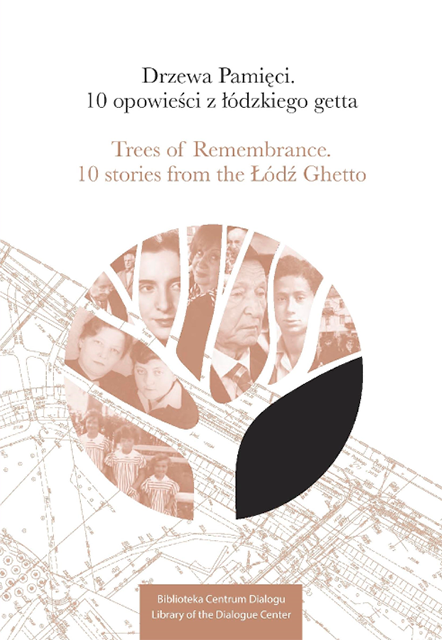
Memorial Trees. 10 stories from the Łódź ghetto
(the catalogue published in bilingual Polish-English version)
The publication is based on an exhibition prepared in 2014 to commemorate the 70th anniversary of the liquidation of the Litzmannstadt Ghetto and the 10th anniversary of the Survivors' Park. It presents ten people - Survivors from the Litzmannstadt Ghetto, whose post-war fate has thrown them into various parts of the world. Nevertheless, they are still closely connected with Łódź to this day. Marian Turski remained in Poland but lives in Warsaw. His actions led to the creation of the Polin Museum of the History of Polish Jews in Warsaw. Josef Buchmann lives in Frankfurt am Main, is a businessman who donated the funds, among others, for the monument to the Righteous Among the Nations and a monument at the Radegast station in Łódź. Although he lives in Israel, Jehuda Widawski actively participates in the life of the Jewish community in Łódź. They all have their trees in the Survivors' Park.
The author of the texts is Joanna Podolska. English translation by Agnieszka Chojnacka.
Dialogue Center Library. Łódź 2014
E-BOOK: https://www.centrumdialogu.com/ebooks/drzewa_pamieci/ (available in Polish and English – bilingual edition)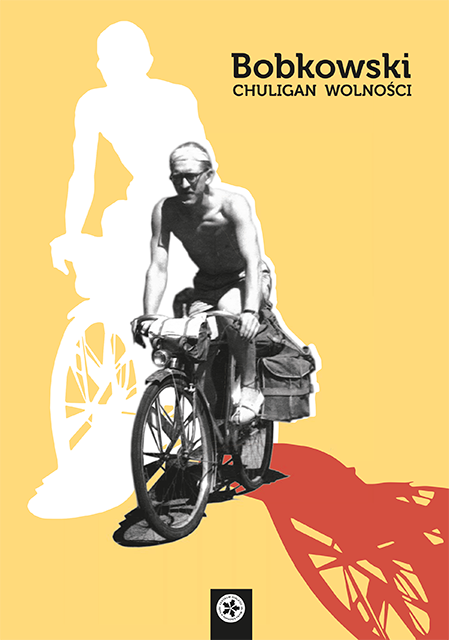
Bobkowski. Hooligan of Freedom
(the book published in Polish)
"A free man, an intellectual, a writer and a truly free poet who wants to be free, will have something of a hooligan in him to the end of this world. Flaubert, already old, wrote in one of his letters:" All banners were soiled with blood and shit, would that there comes a time when these are gone." Isn't that a typical hooligan sentence? Well, as a hooligan of freedom, I don't want to give in to control." – Andrzej Bobkowski wrote in one of his letters to his uncle.
The exhibition prepared in 2013 was devoted to Andrzej Bobkowski (1913-1961), who spent almost all of his adult life outside Poland - firstly in France, then in Guatemala. He was first of all the author of "Sketched with the Quill", which was published by the Literary Institute in Paris in 1957. This is one of the most important books published by the Institute. And not only because of its literary values, but also because of the very interesting reflections contained in it regarding the evaluation of the political situation after the lost war - emphasized Jerzy Giedroyc, Editor of Polish “Kultura” press. Bobkowski also wrote a play "Black Sand" (1959) and a lot of short stories, sketches and notes scattered throughout various magazines, and then collected in books. His works in prose were published not only in the Paris “Kultura” press and London’s “Wiadomości” press, but also in the national press. The exhibition, which was shown on the hundredth birthday of the writer at the Jagiellonian Library, and then in Łódź and other cities, was accompanied by many events organized by the Centre and partners.
Dialogue Center Library. Łódź 2013
E-BOOK: https://www.centrumdialogu.com/ebooks/bobkowski/ (available only in Polish)
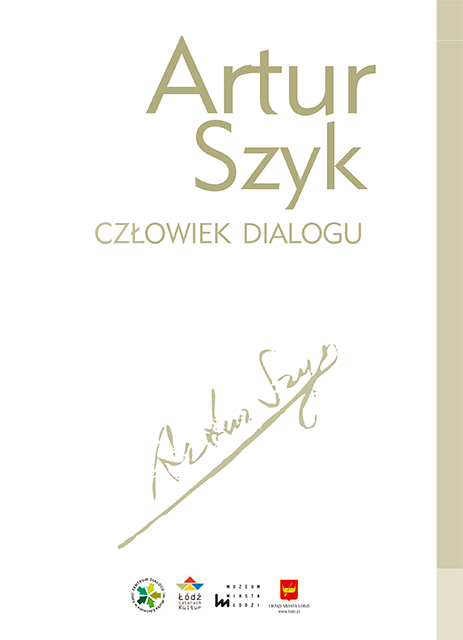
Artur Szyk, the Man of Dialogue
(the book published in Polish and English)
An exhibition about Artur Szyk (1894-1951), a world-renowned artist of miniatures, caricatures, and book illustrator, was put on by the Dialogue Center in 2011, during the Festival Łódź – the City of Four Cultures on the 60th anniversary of the artist’s death. Then, the exhibition toured Poland (visiting Krakow, Warsaw and Wroclaw amongst others), as well as in Vilnius, Paris and Lviv. It was accompanied by a catalogue.
Artur Szyk (1894-1951) was born in Łódź, on June 16, 1894. He was one of the most interesting and surprising artists of pre-war Łódź. In art history, he has been primarily known as a master of miniatures and author of anti-fascist posters. He illustrated, among others "The Haggadah", "Book of Esther", "Song of Songs" or "Statute of Kalisz", where in 45 pages he presented miniatures on Polish-Jewish history starting from the 13th century when Jews in Poland were granted the Kalisz Statute by Prince Bolesław the Pious, a privilege that defined their legal status up to modern times. The exhibition and the catalogue were prepared in cooperation with The Arthur Szyk Society in the United States. The author of the texts and the exhibition curator is Joanna Podolska.
Dialogue Center Library. Łódź 2011
E-BOOK: https://www.centrumdialogu.com/ebooks/szyk/
E-BOOK (EN): https://www.centrumdialogu.com/ebooks/szyk/en
(available in Polish and English)
DICTIONARIES:
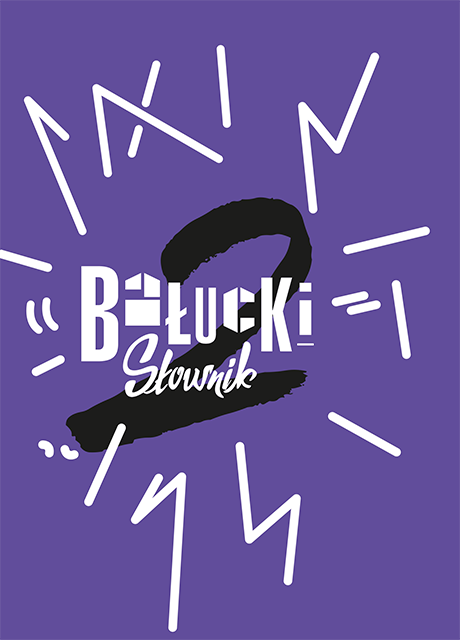
"Bałuty Dictionary 2"
(the book Publisher in Polish)
"Bałuty Dictionary 2" is a continuation of the "Bałuty Dictionary" published in 2015 on the centenary of the district and enjoying great interest among readers. This time, however, we focused language search on words embedded in topography, i.e. on key places for Baluty and the etymology of their names. The gathered material was based on reports provided by journalism students from the University of Łódź, an on-line survey completed by the inhabitants of Łódź, descriptions of Bałuty places prepared by participants of workshops and walks, researching press articles, and finally by specialists involved in the project: Prof. Marek Cybulski, a language historian from Łódź, and Krzysztof Kowalczyński, a guide, author of books on the history of Łódź. The project was implemented from the funds of the National Center for Culture as part of the "Native - add to favorites" programme. The project was implemented from the funds of the National Center for Culture as part of the "Native - add to favourites" programme.
Dialogue Center Library. Łódź 2017
E-BOOK: https://www.centrumdialogu.com/ebooks/balucki2 (available only in Polish)
VERSION IN FLASH LANGUAGE: https://www.youtube.com/playlist?list=PL2f7I8JayIxDgsSPlmDClWxISdgmnV7ex
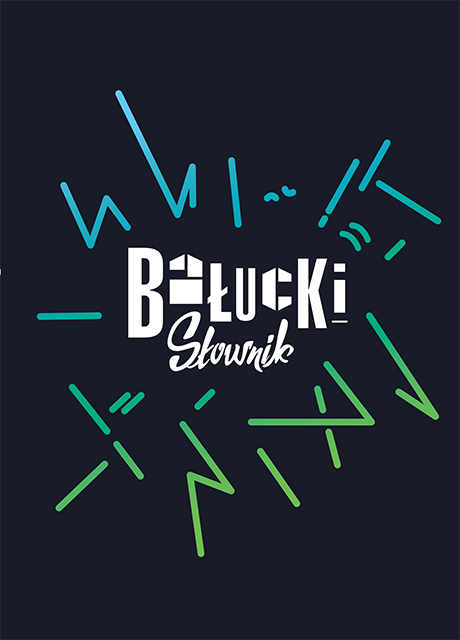
"Bałuty Dictionary"
(the book published in Polish)
"Bałuty Dictionary", a project prepared in 2015 to commemorate the 100th anniversary of Bałuty joining Łódź, was created to present the history of Bałuty - the largest district of Łódź in an innovative way. The participants of language workshops prepared and conducted by experts (combined with lectures and field studies) were familiarized with the etymologies of words often used only in Łódź; they also learned the origin and meaning of the names of streets, squares and estates located in Bałuty. The final effect of the project is the publication of the Bałuty Dictionary, which consists of descriptions (definitions) of places, streets, parks, people and is the result of research and searches carried out during the workshop. The "Bałuty Dictionary" content was also based on conversations with people met during walks around the largest of the districts of Łódź, Bałuty. The publication is not intended for sale. The project was implemented from the funds of the National Centre for Culture as part of the "Native - add to favourites" programme.
Dialogue Center Library. Łódź 2015
E-BOOK: https://www.centrumdialogu.com/ebooks/balucki/ (available in Polish)
VERSION IN FLASH LANGUAGE: https://www.youtube.com/playlist?list=PL2f7I8JayIxA9tq-m0V2SaE3M_feK2zUk
FILM PROJECTS’ CATALOGUES:
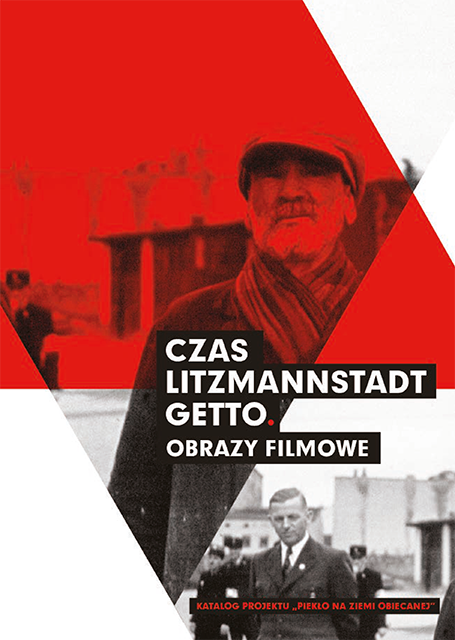
Czas Litzmannstadt Getto. Obrazy filmowe (PL) / Time of the Litzmannstadt. Film images (EN)
Catalogue of the film project "Hell in Promised Land" prepared for the 75th anniversary of the liquidation of the ghetto contains descriptions of all the films presented, including: "Amateur Photographer" by Dariusz Jabłoński, "The Story of Chaim Rumkowski and the Jews of Lodz" (dir. Peter Cohen, Bo Kuritzen), "Radegast" by Borys Lankosz or "Line 41" by Tanja Cummings, as well as texts presenting the historical background.
Dialogue Center Library. Łódź 2014
Published in two language versions; Polish and English.
E-BOOK: https://www.centrumdialogu.com/ebooks/pieklo/
E-BOOK (EN): https://www.centrumdialogu.com/ebooks/pieklo/en
THE MEMORY OF GHETTO:
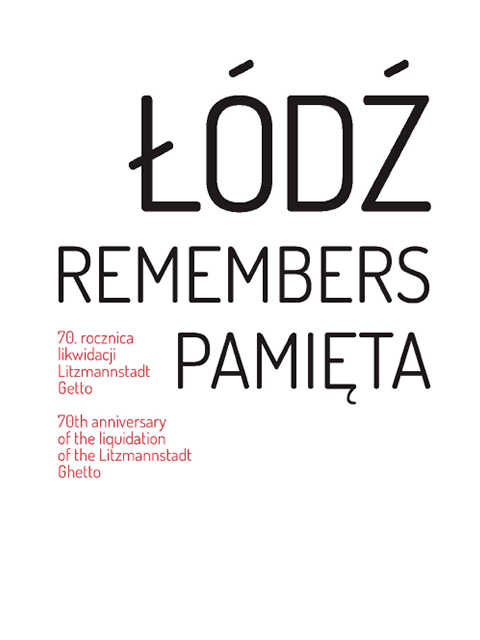
Łódź Pamięta // 70th Anniversary of Litzmannstadt Ghetto Liquidation
(the book in Polish-English bilingual version)
An album summarizing the events which were held to commemorate the 70th anniversary of the liquidation of the Litzmannstadt Ghetto. Official and religious ceremonies, concerts, exhibitions, walks, literary meetings, historical discussions and film screenings have been documented in descriptions and photos. The publication also contains speeches by the hosts of the ceremony, official guests and Survivors.
Dialogue Center Library. 2014
THE YEAR OF JAN KARSKI:
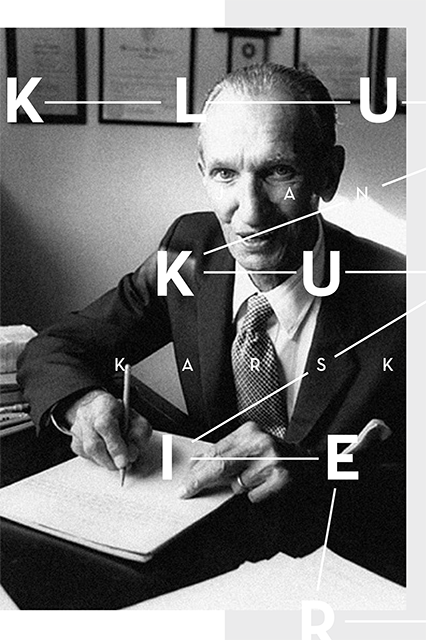
Courier Club, booklet
The Courier Club was founded on the initiative of employees of the Marek Edelman Dialogue Center in Łódź. The Club was supposed to become a place for young people who are interested in learning history directly, at its sources. The idea, which originated in 2014, was inspired by the 100th anniversary of the birth of Jan Kozielewski, better known as Jan Karski, who was born in Łódź in 1914.
The authors of the booklet are members of the Courier Club.
Dialogue Center Library. Łódź 2014
E-BOOK: https://www.centrumdialogu.com/ebooks/karski/klub_kuriera/ (available only in Polish)
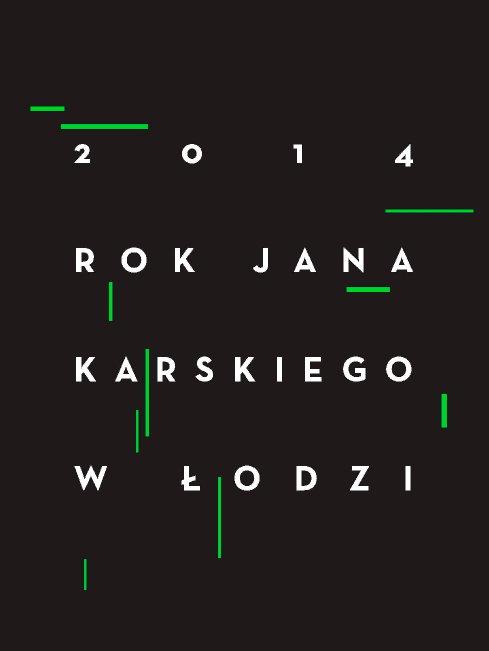
2014 The Year of Karski in Łódź
The American weekly Newsweek placed Jan Karski among the most prominent people of the 20th century, and considered his war mission to be one of the moral milestones of civilization. In December 2013, the Parliament of the Republic of Poland decided that 2014 - the centenary of the birth of the Underground Polish State emissary - would be the Year of Jan Karski. On this occasion, the person of Jan Karski was remembered throughout Poland, as well as in many other countries. In Łódź, where Karski was born and raised, educational and cultural projects were held throughout the year. This publication summarizes the events that took place as part of the Jan Karski Year in the emissary's hometown.Dialogue Center Library. Łódź 2014

